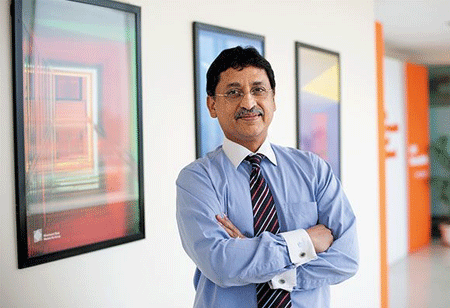
Can technology revolutionize Indian health insurance?


Antony Jacob, CEO, Apollo Munich Health Insurance
I believe that the healthcare industry and health insurance companies should also follow suit and develop technology-led communication tools to create long lasting relationships with customers. Together we should contemplate how to enhance customer engagement with the use of technology.
Consolidation of data: There is a proliferation of data and technology out there today. It’s available in all shapes, sizes and formats for many purposes. Technology can be used to simplify the complex data and through analysis of this data, meaningful solutions can be created. Medical data, tech data, consumer trends etc. can help showcase trends in healthcare and what people prefer. Players in the healthcare and health insurance segments must take complete advantage of such information and build their laurels on fulfilling the consumer needs that emerge from it. The industry needs to create data analysis techniques to develop strong, innovative insurance covers that could help people mitigate every possible healthcare expense incurred during their lifetime. For example, although some policies do offer coverage of outpatient expenses in individual health insurance policies, insurers are yet to develop a full-fledged OPD cover, as the consolidation of data from multiple parties has not yet been centralized.
Mobile technology: In addition to running businesses, local or global in nature, organizational heads must also pay heed to the carbon footprint and environmental impact that businesses have. Mobile apps are the wave of the future in helping reduce the amount of paper businesses use and hence will result in a positive and direct impact on deforestation. India is expected to have over 500 million mobile internet users by 2017. The Indian smartphone market is enormous and there is widespread acceptance for mobile applications that simplify transactions such as bill payment, financial management and information aggregation, etc. As an industry, we must find a way to create applications that help in making all processes paperless – right from pre policy checkups to buying policies to claims settlement.
Hospital check-ins: Today, with technology we are able to determine the best possible route to take to our destination, book a hotel room, flight tickets, movie tickets, order our favorite dish, clothes, furniture etc. through the Internet or through applications on our mobile phones. What if insurance companies develop an application that can help one find the best healthcare facility/hospital/clinic in their city? A mobile application that allows people to do hospital check-ins in advance, wherein the room will be ready upon arrival at the hospital, doctor appointment will be sought and an attendant will be assigned. And for planned treatment, people can also inform their insurer and complete pre authorization formalities through this application. Such an application can be very helpful in saving precious time of a person going for medical treatment.
Swipe/Smart cards: Technology can uncomplicate and enhance customers’ experience multifold. For example, a smart card could contain one’s medical history, treatments, as well as, medicines taken right from the day he/she bought health insurance, irrespective of the fact that a policyholder may have changed or continued with his/her initial insurer. With a single swipe, such a smart card could also show policy benefits, exclusions, inclusions, sum insured and eligibility for related claims would then be instantaneous.
Hospital check-ins: Today, with technology we are able to determine the best possible route to take to our destination, book a hotel room, flight tickets, movie tickets, order our favorite dish, clothes, furniture etc. through the Internet or through applications on our mobile phones. What if insurance companies develop an application that can help one find the best healthcare facility/hospital/clinic in their city? A mobile application that allows people to do hospital check-ins in advance, wherein the room will be ready upon arrival at the hospital, doctor appointment will be sought and an attendant will be assigned. And for planned treatment, people can also inform their insurer and complete pre authorization formalities through this application. Such an application can be very helpful in saving precious time of a person going for medical treatment.
Swipe/Smart cards: Technology can uncomplicate and enhance customers’ experience multifold. For example, a smart card could contain one’s medical history, treatments, as well as, medicines taken right from the day he/she bought health insurance, irrespective of the fact that a policyholder may have changed or continued with his/her initial insurer. With a single swipe, such a smart card could also show policy benefits, exclusions, inclusions, sum insured and eligibility for related claims would then be instantaneous.
Renewed success arises when technology is used for the masses and not just the select few. We need to ensure that every segment of population, every income class has access for such technologies to stay healthy and counter medical exigencies when they arise. After all a healthy population can directly affect a growing economy. In my opinion, the insurance industry is already working on these ideas and they will soon turn into reality. It’s no longer a matter of whether it will happen, it’s just about when.Medical data, tech data, consumer trends etc. can help showcase trends in healthcare and what people prefer.